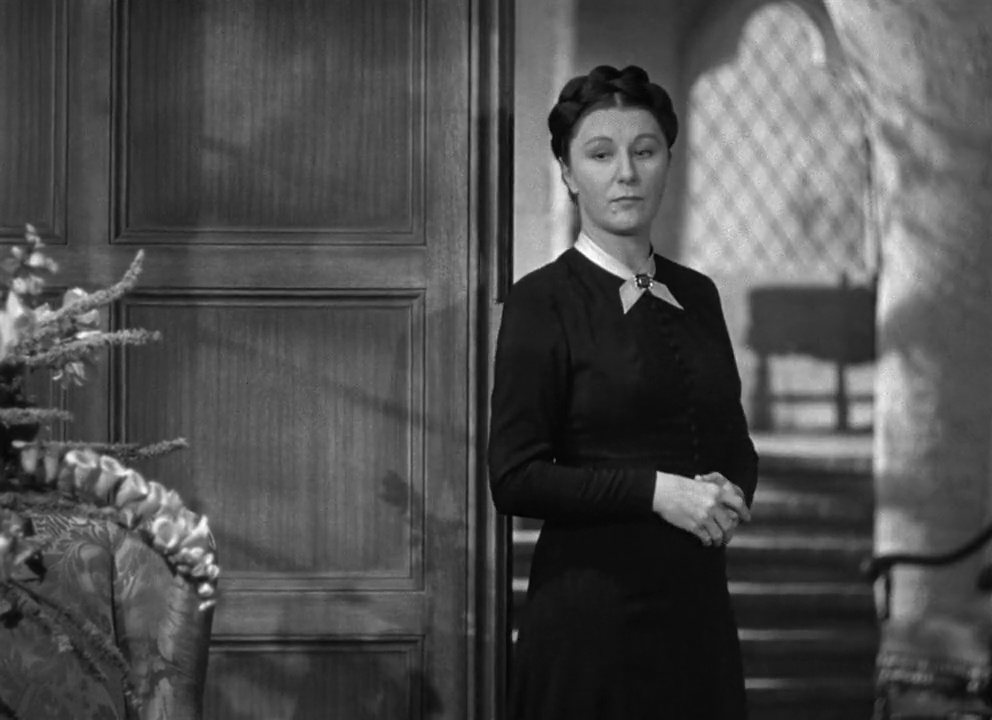by Jason Adams

How could I help myself, right? Tomorrow Netflix is unveiling director Ben Wheatley's re-do of Daphne Du Maurier's "celebrated novel" (I love that is how the book is credited on IMDb) starring Armie Hammer, Lily James, and most enticingly of all Kristin Scott Thomas as the housekeeper-with-secrets. And yet somehow, despite it being one of my favorite performances in a horror film, I haven't gotten around to given Judith Anderson, in that same role in Alfred Hitchcock's Oscar-winning 1940 film, her due with this series. No more! The time for dangerously caressing silky underthings is nigh I say, nigh!
Not that we've exactly been clammed up when it comes tot he subject of Judith Anderson's turn in Rebecca around these parts in the past... A couple of examples I feel like linking to -- in 2013 your communal Team Experience polled up a list of our 10 Most Memorable Hitchcock Performances, and Anderson's Mrs. Danvers came in with a strong second place showing. And then in 2015 for the film's 75th anniversary a string of us tag-teamed the film from start to end, live-blogging what caught our attentions as we went.
In that 2015 post I personally wrote up the film's final act, which was a fascinating chapter to dive into with some detail for me because Mrs. Danvers is all over it but it's not the parts we always remember the most vividly when we think upon the character of Mrs. Danvers. When I think of her I think of her I think of the film's middle-passages -- her walking through sheer curtains and molesting those underthings (all of which was catnip to Vito Russo and his noted tome on queerness at the cinematic margins, The Celluloid Closet); her tricking Joan Fontaine to wear Rebecca's costume to the party, and then whispering into her ear for her to jump, jump, why don't you...

All of her villainous aspects. But the film's last chapter -- before she goes stark raving and burns Manderlay down around her, I mean -- really does hold some of the most interesting insights into Mrs. Danvers, and some of Anderson's most curious and memorable work. I speak of the passage at the courthouse, as the law tries to get to the bottom of just what happened to the original Mrs. De Winter. During this passage far from being the camp icon we're used to thinking of Mrs. Danvers as, the sneering leering Gothic queen haunting the shadows, Anderson just looks like a regular ol' person.

One in a fabulous hat, sure. But what comes across in this sequence off of Mrs. Danvers is a desperate sadness -- Hitchcock actually allows this woman's grief about her... friend... to rule. To sit center stage. All she's wanted is an answer about what happened to the woman she loved so much, and she thinks this inquest is going to finally uncover the truth. But sure enough, through some back-room handshaking the rich and powerful work things out, leaving her and her lost love in the lurch. Mrs. Danvers is heartbroken, and driven to madness by the romantic parlor shenanigans of a bunch of insipid straights. It's enough to make anybody wanna burn a mansion down, I tell ya.
